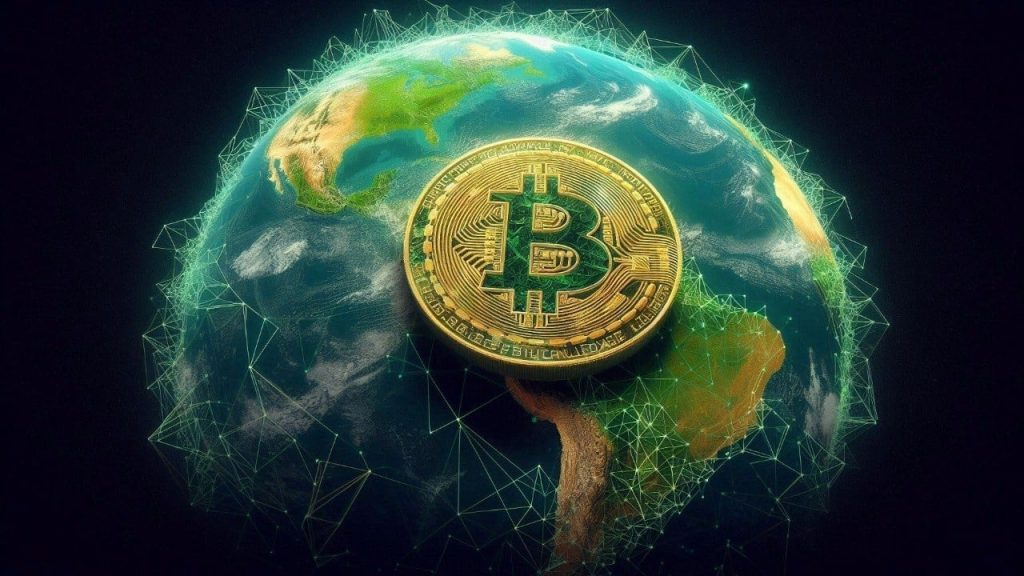
Brazil’s crypto initiatives and BRICS ambitions are reshaping the global financial landscape, positioning the country as a pivotal player in the evolving digital economy. The intersection of de-dollarization efforts, sustainable Bitcoin mining, and fintech innovation underscores Brazil’s strategic vision for a more balanced and technologically advanced financial system.
Brazil’s BRICS Currency: A Paradigm Shift in Global Finance
Brazil’s proposal for a BRICS trade currency represents a bold step toward reducing reliance on the U.S. dollar. The BRICS nations—Brazil, Russia, India, China, and South Africa—have long sought to mitigate the economic and political leverage that the dollar’s dominance affords the United States. By advocating for a BRICS currency, Brazil is championing a multipolar world order where economic power is more evenly distributed.
The Imperative of De-Dollarization
The push for de-dollarization is driven by several factors, including the need to insulate BRICS nations from U.S. monetary policy and sanctions. The U.S. dollar’s hegemony allows the United States to exert significant influence over global trade and finance, often to the detriment of emerging economies. A BRICS currency would provide member nations with greater economic independence, reducing their vulnerability to external shocks and geopolitical pressures.
President Lula da Silva’s vocal criticism of the dollar’s hegemony aligns with Brazil’s broader vision of a more equitable global financial system. His advocacy for a multipolar world order underscores the strategic importance of the BRICS currency proposal. However, the path to implementing such a currency is fraught with challenges, including divergent economic interests, lack of trust among member nations, and technical hurdles.
Overcoming Challenges
The BRICS nations have diverse economies and varying levels of development, making it difficult to reach a consensus on monetary policy and exchange rate mechanisms. Additionally, historical tensions and geopolitical considerations could hinder cooperation. For instance, China and India have a complex relationship marked by both economic interdependence and territorial disputes. Similarly, Russia’s strained relations with Western nations could complicate efforts to create a unified currency.
Despite these challenges, the potential benefits of a BRICS currency are substantial. It could reduce transaction costs by eliminating the need to convert currencies into U.S. dollars for trade, promoting greater economic stability and enhancing the collective influence of BRICS nations on the global stage. The success of such a currency would depend on the ability of member nations to overcome their differences and work towards a common goal.
Tether’s Green Bitcoin Mining: A Sustainable Future for Crypto
In addition to its BRICS currency proposal, Brazil is attracting attention for its efforts to promote sustainable Bitcoin mining. Tether, the issuer of the USDT stablecoin, is playing a key role in this area, pushing for green energy usage to reduce the environmental impact of Bitcoin mining.
Addressing Environmental Concerns
Bitcoin mining is an energy-intensive process, and concerns about its environmental impact have grown in recent years. Traditional Bitcoin mining operations often rely on fossil fuels, contributing to greenhouse gas emissions and exacerbating climate change. Tether’s green Bitcoin mining initiative aims to address these concerns by promoting the use of renewable energy sources such as solar, wind, and hydroelectric power.
By investing in sustainable mining infrastructure, Tether hopes to demonstrate that Bitcoin mining can be both profitable and environmentally responsible. This initiative is particularly relevant in Brazil, which has abundant hydroelectric resources and a growing solar energy sector. These resources could be harnessed to power Bitcoin mining operations, creating jobs and generating revenue while minimizing environmental impact.
Opportunities in Latin America
Latin America offers significant opportunities for green Bitcoin mining. The region is rich in renewable energy resources, and many countries have ambitious plans to expand their renewable energy capacity. Brazil, in particular, has abundant hydroelectric resources and a growing solar energy sector. These resources could be harnessed to power Bitcoin mining operations, creating jobs and generating revenue while minimizing environmental impact.
Tether’s green Bitcoin mining initiative could serve as a model for other cryptocurrency companies and investors. By demonstrating the viability of sustainable mining practices, Tether can encourage broader adoption of green energy solutions within the crypto industry. This, in turn, could help to mitigate the environmental concerns associated with Bitcoin and other cryptocurrencies, paving the way for more sustainable growth of the digital asset ecosystem.
Blockchain Technology and Fintech Innovation in Brazil
Beyond the headlines of BRICS and Bitcoin, Brazil’s fintech sector is quietly undergoing a revolution, fueled by blockchain technology. This technology is enabling startups to control their finances, attract investors, and maintain a competitive edge.
Streamlining Financial Operations
Blockchain provides a transparent and secure platform for managing financial transactions. This is particularly beneficial for fintech startups that may lack the resources to invest in traditional financial infrastructure. By leveraging blockchain, these companies can streamline their operations, reduce costs, and improve efficiency.
Attracting Investment
Investors are increasingly drawn to companies that utilize blockchain technology. The transparency and security offered by blockchain can help to build trust and attract capital. For Brazilian fintech startups, this can be a significant advantage in a competitive funding environment.
Fostering Innovation
Blockchain is not just a tool for streamlining existing processes; it is also a catalyst for innovation. By enabling new business models and applications, blockchain is helping to drive the growth of Brazil’s fintech sector. From decentralized finance (DeFi) to tokenized assets, blockchain is opening up new possibilities for financial services.
Argentina’s Embrace of Smart Contracts: A Regional Milestone
While Brazil is making strides in BRICS currency proposals and sustainable mining, neighboring Argentina is marking its own crypto milestones. Recently, Argentina legally recognized its first Cardano smart contract.
The Legal Recognition Significance
This legal recognition validates smart contracts, a cornerstone of blockchain technology, within the Argentine legal framework. Smart contracts, self-executing agreements written into code, automate and enforce contract terms, minimizing the need for intermediaries.
Implications for Business and Innovation
The move signals a progressive stance towards blockchain technology and could foster innovation in various sectors, including finance, supply chain management, and intellectual property. Businesses can now leverage smart contracts with greater confidence, knowing that these agreements hold legal weight.
Regional Impact
Argentina’s embrace of smart contracts could influence other Latin American countries to adopt similar legal frameworks, further legitimizing blockchain technology across the region.
Conclusion: Brazil’s Transformative Role
Brazil is emerging as a transformative force in the Latin American crypto landscape and beyond. Its ambitious BRICS currency proposal, coupled with its efforts to promote sustainable Bitcoin mining and foster fintech innovation, position it as a key player in the evolving global financial system.
As Brazil continues to navigate the challenges and opportunities that lie ahead, its actions will have far-reaching consequences for Latin America and the world. Whether it’s leading the charge for de-dollarization or championing green crypto practices, Brazil is shaping the future of finance in profound ways.
The confluence of Brazil’s crypto initiatives, Argentina’s legal embrace of smart contracts, and the broader adoption of blockchain technology across Latin America signals a new dawn for the region. A dawn where financial independence, sustainable innovation, and technological progress converge to create a brighter future.





